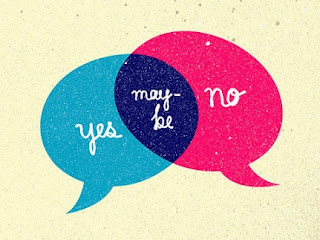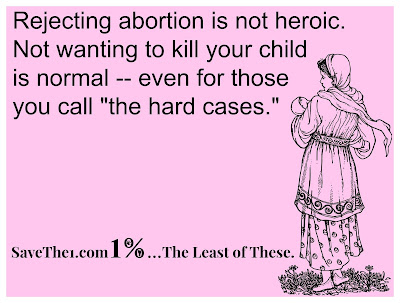We asked, you answered: Is abortion comparable to the Holocaust?
Recently we asked our FB followers: “Do you think comparing abortion to a holocaust is a valid comparison?”
We got tons of responses. (I read over the first 80 comments but stopped keeping track after that.) Opinions seem to break down into three overall categories:
1. No, the comparison has problems.
2. Yes, it’s a valid comparison, but not necessarily an effective one.
3. Yes, it’s a valid comparison.
Below is a sampling from each category. Some comments are edited for length but not content. You can read the unedited comments as well as all the comments not reprinted here on the original FB post.
1. No, the comparison has problems.
Emily: In the world of therapy/psychology it is often said that people should not attempt to compare their grief with another’s. For the same reasons, I think in comparing abortion and the holocaust there is a breakdown that can unintentionally minimize the grief of either tragedy. Just as with all sadness, we see some grave similarities. But there are many reasons not to measure them next to each other.
Noah: Abortion isn’t about killing all babies, just ones in certain circumstances, while the holocaust was about wiping out entire groups of people.
Christian: The comparison is not simply one of deaths but of overall suffering. The prisoners in the Holocaust were starved, abused, stripped naked and humiliated, shot for sport, experimented on, worked like slaves, frozen, marched to death, and lived with the ever-present knowledge that they might be corralled in a gas chamber like animals. They were the living dead. Dismemberment of a fetus is ugly and disturbing, but the victim is not a conscious sufferer (at least not to the same degree). It doesn’t process what’s going on at all, or, if it does, it’s at the most remedial level (physical pain).
Richard: Until the government mandates people having abortions against their will, it’s tough to say they’re parallel.
Frank: I don’t think so, for the following reason: a holocaust is directed against the people of a certain race (or, in some cases, a religion or other common factor), and the desired end result of that holocaust is a world free from Jews/Catholics/Palestinians etc. Abortion supporters don’t target any particular group; they don’t discriminate on any other grounds than age, and in general they don’t force any mother to abort her child. Whilst I am strongly pro-life, I consider the term holocaust not only inaccurate but also unnecessarily provocative which can’t possibly be helpful in a rational discussion.
Aria: Jews, gypsies and non-Aryans were raped, pillaged, humiliated, tortured, and worked to death. As much as I deplore abortion, no, I don’t think it’s a fair comparison.
Grace: The problem with comparing abortion to the holocaust is the regular societal dismissal of Jewish suffering and persecution by the non-Jewish general public. Many Jewish people are frustrated that anti-Semitic sentiments are often alive and well despite the toppling of the Nazi regime. Instead of co-opting an event that is very much a pivot point in Jewish history (though gay people, Catholics, and Roma people also suffered greatly), it would be better to stop using this comparison.
Moni: holókaustos means burning something down totally…[it] can also be applied on the Nazi-ideologies’ wish to destroy the whole Jewish nation, figuratively ‘burn down’ the Jewish nation to its ashes. Abortion does not have the aim to destroy a nation – applied on the third world, ‘birth control’ does want to stop the growth of the population (which is considered too high), but not destroy a race or a nation completely.
The greek word génos can be applied widely on race, lineage, origins, descent or background, the latin word caedere means murder or massacre. So no matter what motivation causes an ideological mass-murder of women (China, India) or handicapped people within the womb, the word genocide fits perfectly. Also the high amount of abortions within the black (and neglected by society) part of American population can be seen as genocide, out of opportunistic economic motives. Genocide implies the organised murder of a group of people for base motives, people who are, to quote Warren J., “classified as non-persons.”
I tend to say, that the holocaust was a genocide, but not every genocide should be called holocaust.
2. Yes, it’s a valid comparison, but not necessarily an effective one.
John: Since the unborn child is fully human, it is unquestionably accurate to make that comparison. However, is it politically and rhetorically advantageous? That’s another question entirely.
Jeff: It is logically analogous, yes. But the prevalence of Reductio ad Hitlerum makes it an ineffective and often counterproductive rhetorical tactic. I would avoid it.
Kasey: Unfortunately I’ve had pro-choice people immediately write me off as a crazy person when I use this comparison. … I’ve learned that before using the comparison I need to preface it with clearly emphasizing the truth about what I believe: science and logic and general human morality dictate that an unborn baby is a human being of equal human rights at an early stage of development. That seems to help the comparison land better.
Beatrice: Yes, but it’s the kind of thought I would keep to myself. We need to meet people where they are and the average person who believes that abortion is a woman’s right is nowhere close to that thought pattern.
R.J.: In many ways, yes – but strategically I believe such a comparison is most valuable when used to motivate apathetic pro-lifers, rather than converting abortion-supporters to being pro-life.
Simon: An argument might have valid points if looked at objectively but may still hit a wall emotionally. Industrial animal agriculture has been compared to slavery by some vegans yet people won’t even consider the concept. Fundamentally people think they are good moral beings and if it’s argued otherwise they automatically become defensive. If you don’t overcome this even a valid comparison is counterproductive.
Adele: It is absolutely a valid comparison–you have the systemic and LEGAL elimination of a specific group of defenseless people. There are even lots of parallels in the euphemisms used for abortion, the unwillingness to look at pictures of the procedure, and the demonization of the opposition. Having said that, I have never found it a useful argument, as it does not engage pro-choicers in meaningful conversation.
3. Yes, it’s a valid comparison.
Lisanne: I really think someday we’re all going to look back on legalized partial birth and late term abortions with the same revulsion and disbelief that society could justify committing such an act.
Kyle: The issue, to me, is why abortion is immoral; the reason is because it’s killing a human being. To the people who support aborting a baby, they believe he or she isn’t a human being. To quote Adolf Hitler: “The Jews are undoubtedly a race, but they are not human.” So the comparison should be between the mindset of Nazis and pro-choice people. That said, they’d still just laugh it off like they always do.
Drexel: They’re both given pleasant euphemisms: Choice and The Final Solution
Chris: Yes, very valid, because babies are exterminated in mass numbers for the same reasons Jews were; the belief that they are not equal human beings, and don’t have equal rights to everyone else, and that their extermination can actually make society better.
Jimmy: Through the lens of history we can look back several generations and say to ourselves, “How did they let this happen? How could they not see the evil of it? What let them stand by and accept this as normal?” We bear witness to the systematic attempted extermination of the Jewish people, the Romani people, and any who were deemed undesirable. We can feel the horror of events that unfolded as the Holocaust took shape and changed the world forever. There are many who understand that in a century our descendants will talk of the dark years of Abortion in the same manner. That everyone alive will understand it could have been one of their ancestors, one of their grandparents or great grandparents who might have been lost. Many will still have records of lost life from their family line. And they will ask of history, “How did they let this happen? How could they not see the evil of it? What let them stand by and accept this as normal?”
I do not know how we will answer them.
Alexandria: Yes in the sense that the differently abled are targeted. As an experience it is different, but the sentiment – this life is not valuable/perfect enough- is the same.
Victoria: Yes. Particularly because in both abortion and the Holocaust, one segment of humanity is demonized, dehumanized and vilified in order to be quite ruthlessly murdered, under the same guise of protecting the “rights” of another segment of humanity, with the justification of the dehumanized “enemy” as being oppressive to the second segment. Even though, realistically, the second segment is on no way oppressed and is in fact the oppressor.



Leave a Reply
Want to join the discussion?Feel free to contribute!